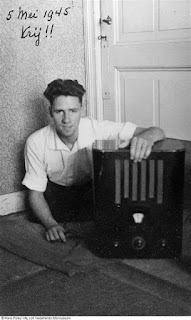The Little Woman Who Went to China: The Story of Gladys Aylward
“Here is my Bible. Here is all the money I
have. Here is me. Find some way to use me, God!” prayed twenty-seven year
old Gladys Aylward.
She was unqualified; a simple
housemaid who was thrown out of Bible school for not passing Bible class. But
she was willing. Gladys knew God had called her to be a missionary to China,
and she was ready. She just didn’t know how she would get there. When she prayed that prayer, she only had two and a half pennies. But God soon began to provide the money. And while she saved, Gladys read and prepared to be a missionary, though she was unsure where in China she’d go and what she would do when she got there. Until she heard of Mrs. Lawson. An elderly lady serving as a missionary in China, she wanted to train someone to carry on the work after her. “That’s me,” said Gladys. Before long, she was leaving everything she knew and heading to China.
The journey to China was an adventure in itself. When the train was forced to stop because of the war that was raging, Gladys walked miles in the freezing cold. Then her belongings were taken, and she almost ended up an unwilling machine worker in Communist Russia. But at last she reached China where she met Mrs. Lawson and began missionary work.
Her work rescuing orphans began when one day, after Mrs. Lawson’s death, she was walking to see the mandarin and saw an old woman dressed in bright colors and a very sick little girl. Gladys was horrified to learn that the child wasn’t given the care she needed because she was “owned” by the old woman who said, “If she dies, I can get another one to replace her anytime I want.” When Gladys spoke to the mandarin about it, he said it was not good that there were child sellers, but she could do nothing about it. Gladys responded boldly, “I came to China because God sent me. I did not come to obey your laws if they are different from the laws of my God. I will ask God what I should do about the child seller, and I will do as He says, not as you or anyone else tells me.” On the way home she bought, or as she preferred to say, adopted, the little girl for nine pennies. So the girl, whom she called Ninepence, became the first orphan she cared for.
More orphans soon followed. And when war came, even more children were orphaned. At one point she had two hundred orphans in her care. They needed to be taken across the mountains to an orphanage where they would be safe from the war. A Christian man came for one hundred of them, but he wouldn’t be coming back for the other hundred. He had been killed. So it was up to Gladys to lead one hundred children across the mountains—on foot—to safety.
Some nights they slept in the open. Other nights hospitable strangers offered them lodging. They faced hunger, exhaustion, and danger. Enemy planes flew overhead. They looked eagerly for the Yellow River, knowing once they crossed it, they could ride a train the rest of the way. At last they reached the river only to find the town beside it abandoned except for an old man who told them everyone had left in boats. There were no boats now—no way to cross the river. They waited at the riverbank four days until a Chinese soldier came and took them across.
Finally they made it on the train. But new challenges were soon to follow. When the train could go no further because the bridge had been bombed, Gladys and the children had to cross another mountain on foot. When they reached the other side, they discovered only coal trains running. So they rode on top of the coal. When they reached their destination, they learned the city was taking no more refugees. Back on the train, they went a three days’ journey to another town. There, Gladys, dazed and confused, managed to find an orphanage for the children to stay at, just before slipping into a coma. (Before the journey across the mountains, she’d been struck in the head with a rifle butt facing an enemy soldier). She was taken to a hospital where she recovered.
As soon as she was well enough, she went back to her missionary work. For the rest of her life, whether she was in England or China, she proclaimed the gospel of Jesus Christ and poured out her life for the needy. She died in China in 1970.
Source:
Gladys Aylward: The Adventure of a Lifetime by Janet and Geoff Benge



Comments
Post a Comment